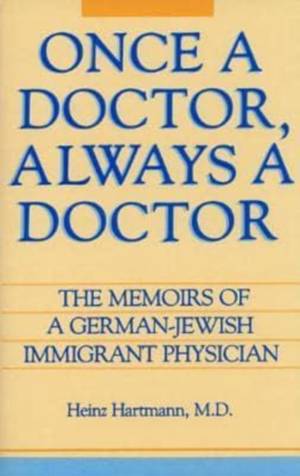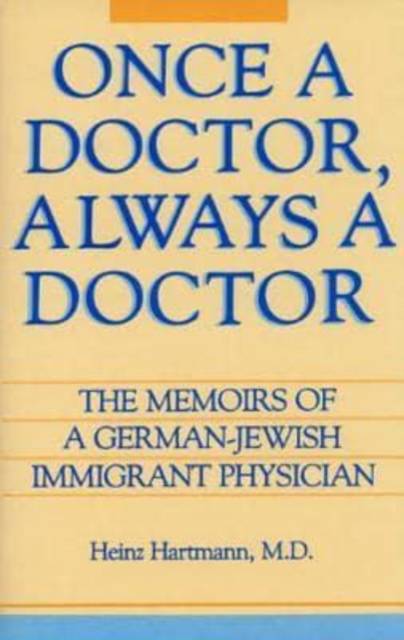
- Afhalen na 1 uur in een winkel met voorraad
- Gratis thuislevering in België vanaf € 30
- Ruim aanbod met 7 miljoen producten
- Afhalen na 1 uur in een winkel met voorraad
- Gratis thuislevering in België vanaf € 30
- Ruim aanbod met 7 miljoen producten
Zoeken
Omschrijving
Heinz Hartmann, a young, ambitious medical student, had fulfilled all the requirements for his degree in medicine except one - Aryan descent. As a Jew in the Germany of the 1930's, Hartmann saw his professors flee the country or be shipped off to concentration camps, Jewish-owned stores and homes looted and vandalized, and musicians forbidden to play music by Jewish composers. Because Hartmann was not allowed to graduate from a German medical school, he earned his M.D. degree at the University of Berne in Switzerland. But he later returned to Germany to marry Herta, a young nurse. Two weeks after the wedding, Hartmann and scores of other Jewish men were rounded up, loaded on to trains, and sent to Buchenwald.
Hartmann was one of the more fortunate prisoners of the Nazis. In 1939, he was released from the camp and undertook the complicated, expensive, and dangerous procedures necessary to free his wife and himself from Germany to go to the United States. He then began his long and distinguished career as a general practitioner and his unending search for the meaning of Judaism.
In Once A Doctor, Always a Doctor, the author tells of the struggles, tragedies, and joys of his life with a spirit of innocence and good heartedness. His narrative is filled with poignant, sometimes simple, often warm and funny stories about his early medical practice, his family life, the similarities and differences he has discovered between various religions, and the "missionaries" who have tried to convert him.
Once A Doctor, Always a Doctor enlightens, delights, and inspires. It is the story of a sensitive, compassionate man - a doctor who has spent his life caring for the sick and healing the scars left by the Nazis.
Hartmann was one of the more fortunate prisoners of the Nazis. In 1939, he was released from the camp and undertook the complicated, expensive, and dangerous procedures necessary to free his wife and himself from Germany to go to the United States. He then began his long and distinguished career as a general practitioner and his unending search for the meaning of Judaism.
In Once A Doctor, Always a Doctor, the author tells of the struggles, tragedies, and joys of his life with a spirit of innocence and good heartedness. His narrative is filled with poignant, sometimes simple, often warm and funny stories about his early medical practice, his family life, the similarities and differences he has discovered between various religions, and the "missionaries" who have tried to convert him.
Once A Doctor, Always a Doctor enlightens, delights, and inspires. It is the story of a sensitive, compassionate man - a doctor who has spent his life caring for the sick and healing the scars left by the Nazis.
Specificaties
Betrokkenen
- Auteur(s):
- Uitgeverij:
Inhoud
- Aantal bladzijden:
- 189
- Taal:
- Engels
Eigenschappen
- Productcode (EAN):
- 9780879753429
- Verschijningsdatum:
- 1/05/1986
- Uitvoering:
- Hardcover
- Formaat:
- Genaaid
- Afmetingen:
- 147 mm x 224 mm
- Gewicht:
- 403 g

Alleen bij Standaard Boekhandel
+ 97 punten op je klantenkaart van Standaard Boekhandel
Beoordelingen
We publiceren alleen reviews die voldoen aan de voorwaarden voor reviews. Bekijk onze voorwaarden voor reviews.











